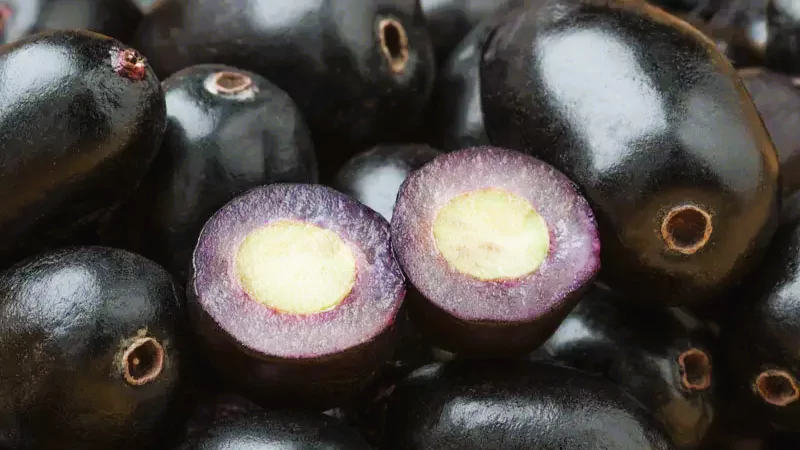Introduction About Oranges
oranges, any of the many species of small trees or plants in the genus Citrus of the Rutaceae family and they are almost round fruit, with skin, oily rinds and juicy, edible inside meat.
Many types and varieties of oranges are important for the economy, namely Chinese oranges, also called sweet or common oranges (Citrus ×sinensis); tangerines (C. reticulata), some species called mandarins; and small sour or Seville orange (C. ×aurantium). Common sweet orange varieties include the Jaffa, from Israel, the seedless orange, and the Maltese, or blood orange.
Selection and storage
The orange fruit season starts in October and lasts until February. Steel is used to harvest the ripe fruit from the tree, so it can cause minor damage to the surface. These small abrasions on the surface of the fruit, however, do not affect the quality of the fruit.
In the store, buy fresh fruit that is strong, but it causes mild pressure but it returns immediately. Fresh oranges have a bright color, no wrinkles on the skin, should be heavy for their size and give off a pleasant aroma.
Avoid very tender fruits with spots and mold as they will spoil early. Oranges can be stored at room temperature for about a week. They can be stored well for up to two weeks in the fruit/vegetable section of the home refrigerator.
Place them in a fruit container and place them in a cool, dry place to develop mold in time. Store freshly squeezed orange juice in the refrigerator for later use. Store dried orange peel in a cool, dry place in an airtight glass container.
Varieties of oranges:

Navel Orange: Named after the navel like surface of an orange. These are the best-selling oranges in local stores.
Blood orange: hard skin, with ruby red pulp inside. It has a sweet, tart flavor and is used in desserts.
Mandarin Orange: Has a thinner skin and is less acidic compared to regular oranges.
Tangerine: It is a bit more acidic compared to mandarin. It has a soft skin, which is easy to peel off.
Clémentine: Small and fruitless. It has thin and shiny skin and is preferred by children.
Orange Nutrition facts
Orange pulp 37.26 kcal for its weight of 100 g which is small. Orange is rich in vitamin B1, vitamin B7, vitamin B9 and vitamin D. But the most important vitamin it provides is vitamin C which is 40mg.
For Indians, the value of the RDA in 40g of vitamin C and oranges provide more than 100% RDA while those who refer to 90mg as the RDA of vitamin C, vitamin C consumption is 47, 6% RDA. Apart from vitamins, oranges also provide a lot of iron, chromium and potassium which have many health benefits.
Orange is one of the best fruits in the world. It is not surprising that it is a healthy home. Not only are there health benefits, but there are also great treatments. A review of the literature shows that the citrus fruits of oranges/sweet oranges are antioxidant, heart-supportive, health-promoting, and anti-cancer.
List of Health benefits from Oranges
Help to Boost Immunity
Orange is a source of vitamin C, which is a powerful antioxidant that helps boost the immune system. Vitamin C helps protect cells from free radical damage, and it plays a role in collagen production and iron absorption.
Vitamin C can also help reduce the severity of certain respiratory illnesses, such as the common cold.
Promote healthy skin
Oranges can help promote healthy skin due to their high vitamin C content. Vitamin C is an important nutrient that helps support collagen production in the body. Collagen is a protein that forms the structure of skin, hair and nails. It helps make the skin stronger and younger, and it can help reduce the appearance of fine lines and wrinkles.
In addition to its role in collagen production, vitamin C also has an antioxidant effect, which means it can help protect the skin from damage caused by harmful substances called free radicals. Free radicals are produced by the body in response to environmental stressors, such as pollution, UV rays and tobacco smoke.
They can damage skin cells, leading to aging and other skin problems. By eliminating free radicals, vitamin C can help keep the skin healthy and youthful.
Improve brain function
Some evidence suggests that oranges can help improve brain function due to their high antioxidant content. Antioxidants are substances that can help eliminate harmful substances called free radicals, which are produced by the body in response to environmental problems, such as pollution, UV rays and tobacco smoke.
Free radicals can damage cells and tissues in the body, including the brain. By neutralizing free radicals, antioxidants can help protect the body from damage and can reduce the risk of certain diseases, including depression and dementia. Oranges are a good source of many antioxidants, including vitamin C and flavonoids.
Some studies have shown that people with high levels of vitamin C in their blood have better cognitive function, including better memory and faster processing.
Good for diabetes
Oranges can be a good choice for people with diabetes because they are low in calories and have a low glycemic index, which means they do not cause a rapid increase in blood sugar.
Fast glycemic index foods can raise blood sugar levels in humans. Foods with a high glycemic index, such as white bread and sugary drinks, can cause blood sugar to rise quickly, while foods with a low glycemic index, such as oranges, causes the blood sugar to gradually increase.
Prevent cancer
Oranges contain D-limonene which has been shown to prevent cancers such as breast cancer, colon cancer, lung cancer and skin cancer. Vitamin C in oranges also works as an antioxidant that protects cells from damage caused by free radicals. Many studies have shown the importance of antioxidants in preventing and preventing the growth of cancer tumors
Similarly, the fiber content of oranges can help prevent colorectal cancer by improving the digestive system.
Prevent Kidney Stones
The high vitamin C content in oranges is also good for kidney health. It helps reduce the risk of developing calcium oxalate kidney stones by increasing the level of citrate in the urine. It also helps prevent the formation of kidney stones by reducing the crystals of uric acid.
In fact, researchers at the University of Texas Southwestern Medical Center suggest that drinking orange juice may be more effective than other citrus juices in preventing kidney stones.



